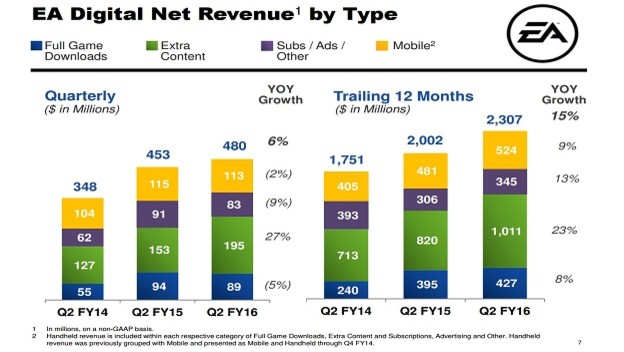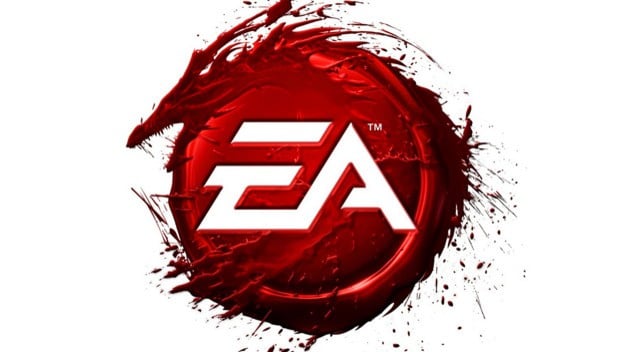There have been a lot of really good discussions lately about the increasing implementation of microtransactions (MTs) in our games. Destiny has been making money off of the silver needed to buy exclusive emotes and masks and 343 Industries wants you to buy more REQ packs for Halo 5: Guardians . Payday 2 developer Overkill was on the receiving end of some serious verbal overkill from fans when it implemented a MT system after publicly declaring at launch that it wouldn’t use any such system. For the most part it seems pretty clear: we hate microtransactions and we want them to go away.
Recent earnings reports, however, would suggest that despite our general loathing for MTs and all things pay-to-win, we’re still giving these publishers our money; lots and lots of our money. EA’s most recent earnings report indicates that in the second quarter of this fiscal year, it made over a billion (that’s billion with a b) dollars from “extra content.” This extra content includes everything we might purchase through these MT systems, including weapon and character skins, additional items and materials, in-game currency, etc. It also includes DLC bundles, map packs, and things of that nature. Season passes were categorized separately and you better believe that, were they included, extra content would have made up the overwhelming majority of digital net revenue.
Full game downloads were indicated to account for $427 million, not even half of what EA made from all of its add-ons and micro offerings. These numbers are out there for everyone to see, and you know that publishers and developers are adjusting their business models accordingly. There’s a reason Activision was willing to pay almost $6 billion to acquire King, the maker of Candy Crush, and there’s a reason that part of Nintendo’s strategy moving forward is a working partnership with free-to-play mobile magnate DeNA. These companies know now that no matter what we may say in comments sections and on forums, we are willing to part with smaller amounts of money to enhance games we already own more frequently than we’re willing to drop $60 for another game.

What does this mean for developers and for gamers in the future? For developers, it will mean a huge shift in priorities. Let’s face it, all of the bigger publishers are in business with one goal in mind: making as much money for shareholders as possible. It’s a no-brainer. If you’re running a good business, you want to get bigger returns on your investments, and AAA games are huge investments. If you’re an executive at Activision and you have $500 million on the line developing and promoting a game like Destiny , you want to squeeze every last dollar out of consumers. Developers pitch new games to publishers in very much the same way that entrepreneurs might pitch a business plan to an investor, and from now on you can be sure that publishers will demand ambitious, long-term strategies to seduce players into investing as much money as possible in a single game. They’ll want to see microtransactions that give players a competitive edge, and DLC that isolates those who don’t pay for it.
This isn’t very good news for many people who love video games. If you have money to throw around, though, it might not affect you as much. Hell, it might even be great news. After all, if your favorite game is Black Ops 3 , you’re guaranteed to receive additional content for at least as long as it takes for Treyarch to release a trailer for its next big game.
How do you think the profits being made from MTs and add-ons will affect future games? Are developers likely to intentionally scale back the core experience in their games to steer more players toward models built around MTs? Let’s hash it out in the comments.
